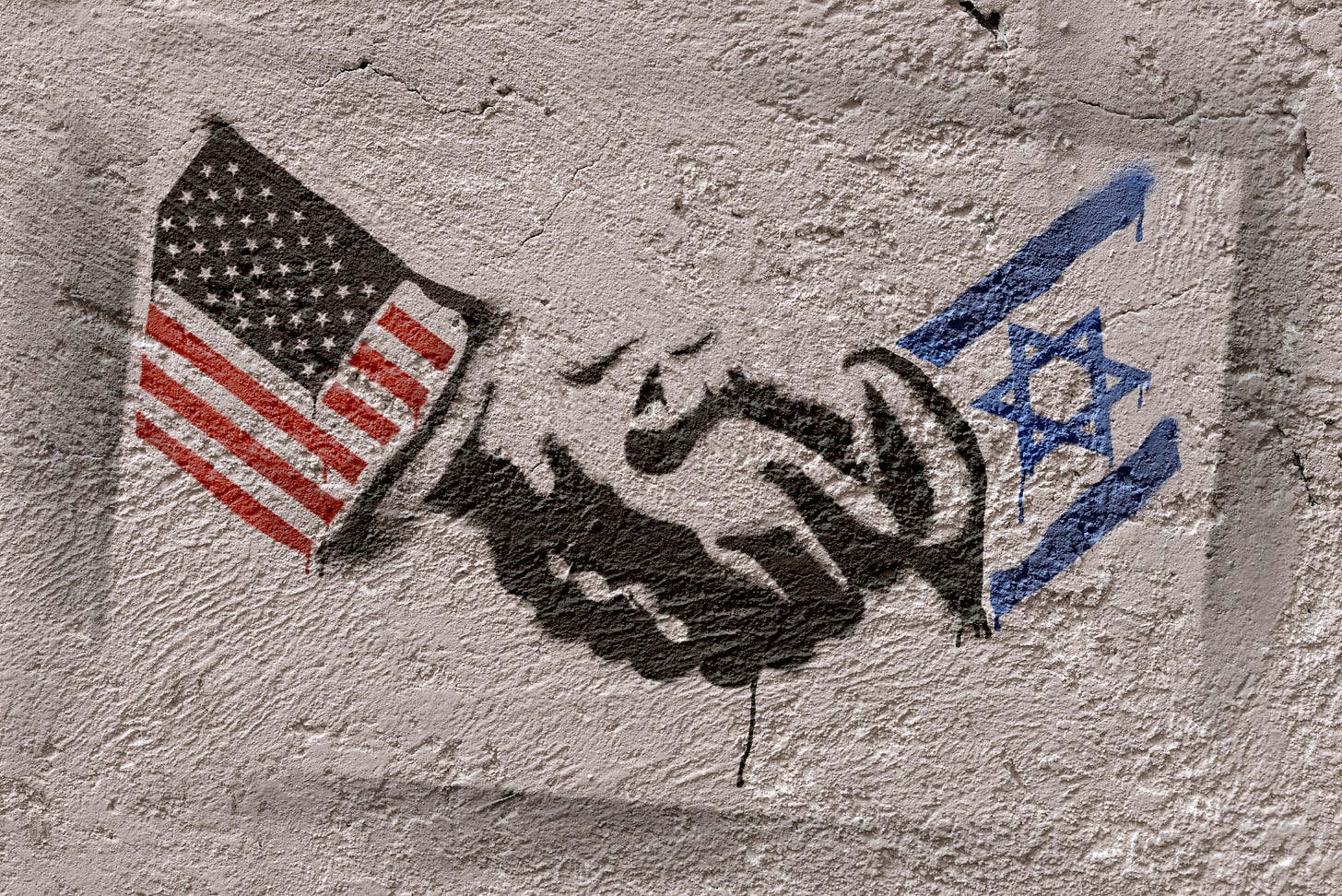American Support for Israel Hits Rock Bottom as 60% Oppose Military Aid.
New Quinnipiac Poll Shows Record High Opposition to U.S.-Israel Military Alliance Since October 7 Attacks
A majority of Americans now disapprove of U.S. military aid to Israel, with 60% of voters opposing additional assistance, according to a new Quinnipiac University poll released Tuesday, marking the highest level of opposition since the October 7, 2023, Hamas attacks. The survey represents a dramatic shift in American public opinion on one of the United States' most enduring foreign policy relationships, with only 32% of respondents supporting continued military aid to Israel.
The polling data, first reported by Politico, reveals deepening skepticism about the U.S.-Israel military alliance amid Israel's ongoing war in Gaza, which has now stretched into its second year.
Sharp Partisan Divide Emerges on Military Support
The Quinnipiac survey exposed stark differences along party lines regarding U.S. military assistance to Israel. Among Democrats, 75% oppose sending additional military aid, while 66% of independents share this view. In contrast, 56% of Republicans still support further military spending for Israel, though this represents a minority within the overall electorate.
"Support for the Palestinians is increasing while the willingness to provide military funding to Israel is declining sharply," said Tim Malloy, a polling analyst at Quinnipiac University.
The partisan gap reflects broader ideological divisions over America's role in the Middle East conflict. Democratic opposition has intensified significantly since the war began, with many party members increasingly viewing Israel's military actions as disproportionate or excessive.
Genocide Allegations Shape Public Perception
Perhaps most striking, the poll found that half of all American voters believe Israel is committing genocide in Gaza, including 77% of Democrats and 51% of independents. Among Republicans, 64% reject the genocide characterization, while 20% agree with it.
This finding represents a fundamental shift in how Americans perceive Israel's conduct in the conflict. The genocide allegation, once relegated to activist circles, has now entered mainstream American political discourse and appears to be influencing public support for continued military aid.
The poll results align with other recent surveys showing declining American support for Israel's military actions. A July Gallup poll found that only 32% of Americans approve of Israel's military action in Gaza, down 10 percentage points from the previous year.
Sympathy Shifts Toward Palestinians
The Quinnipiac survey revealed that American sympathies in the conflict are now nearly evenly divided, with 37% expressing greater sympathy for Palestinians and 36% for Israelis. This represents the highest level of sympathy for Palestinians and the lowest for Israelis since Quinnipiac began tracking these sentiments in December 2001.
This shift is particularly pronounced among younger Americans and Democrats. A separate CNN poll found that only 9% of Americans under 35 approve of Israel's military actions in Gaza. Among young Democratic-aligned adults, 72% believe the U.S. is providing too much military support to Israel.
Generational Divide Threatens Long-term Relationship
Political analysts note that the erosion of support is most pronounced among younger Americans, suggesting potential long-term implications for the U.S.-Israel relationship. Shibley Telhami, a professor at the University of Maryland and director of the Critical Issues Poll, told Al Jazeera that the findings reflect "the solidification of a generational perspective among particularly younger Americans".
"What we're observing is the solidification of a generational perspective among particularly younger Americans – predominantly Democrats and independents, but also some young Republicans – who now view the atrocities in Gaza as indicative of Israel's identity," Telhami said.
This generational shift could have profound implications for future U.S. foreign policy, as younger voters who oppose current Israel policy will eventually become the dominant political force in American elections.
Trump Acknowledges Israel's Declining Influence
Even former President Donald Trump, traditionally a strong supporter of Israel, has acknowledged the changing dynamics. In a recent interview with The Daily Caller, Trump observed that Israel's once-powerful lobby has lost its grip on Congress.
"Israel was the strongest lobby I've ever seen. They had total control over Congress, and now they don't. You know, I'm a little surprised to see that," Trump said.
Trump attributed the decline to Israel's handling of public relations during the Gaza war, noting that while Israel "may be winning the war, they're not winning the world of public relations".
Policy Implications and Future Outlook
The polling data comes as President Trump and his advisers strategize on Gaza policy, while Democrats debate potential changes to U.S.-Israel relations, including discussions about military arms embargoes and aid suspension. The shift in public opinion could embolden lawmakers who have previously been reluctant to challenge the U.S.-Israel relationship.
Multiple surveys now confirm the trend. A Pew Research Center poll from March found that 53% of U.S. adults held an unfavorable view of Israel, compared to 42% in 2022. The share voicing "very unfavorable" views roughly doubled from 10% in 2022 to 19% in 2025.
As American public opinion continues to evolve, the traditional bipartisan consensus supporting Israel faces its most serious challenge in decades. The Quinnipiac poll's findings suggest that the U.S.-Israel military alliance, long considered unshakeable, now confronts unprecedented skepticism from the American electorate, potentially reshaping one of America's most significant foreign policy relationships for years to come.



